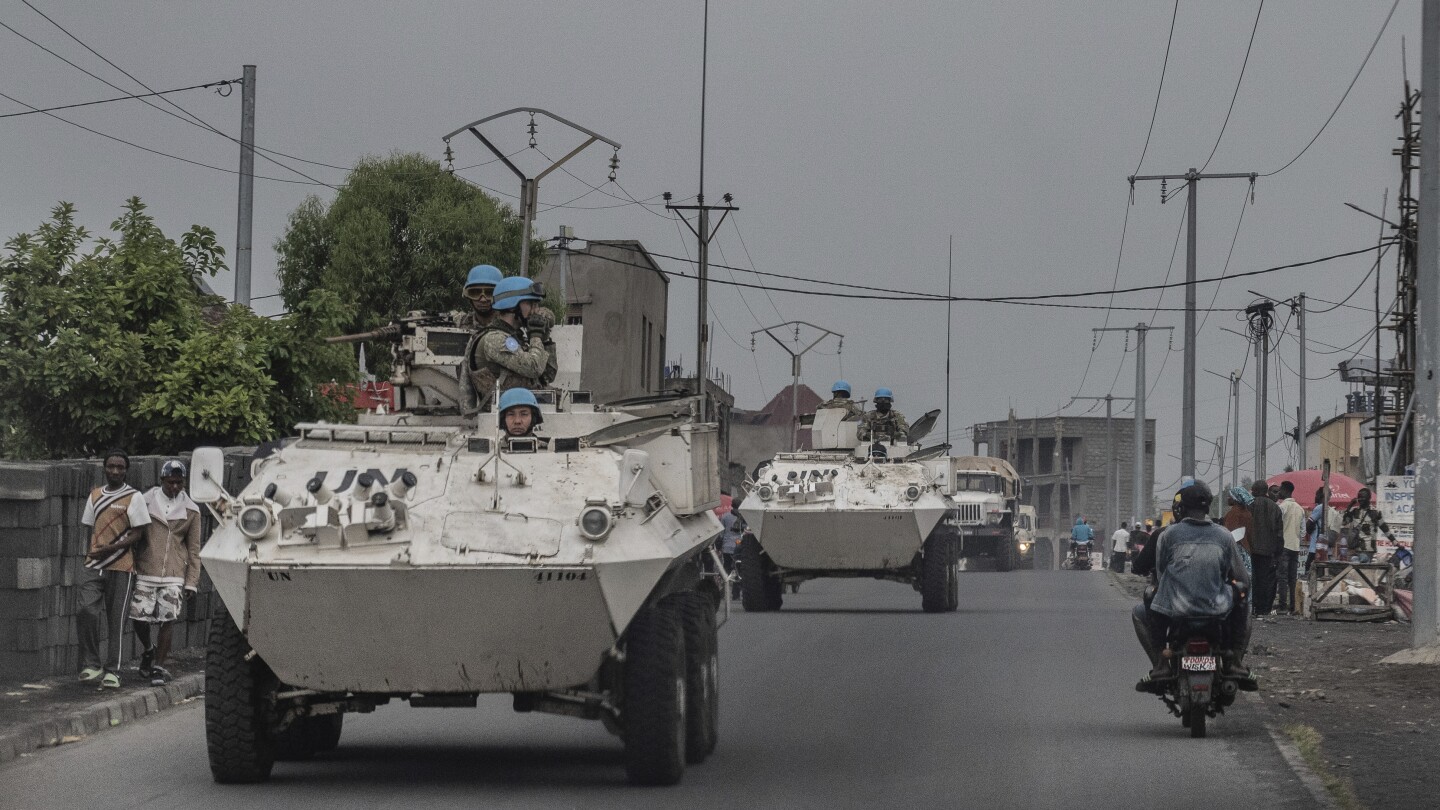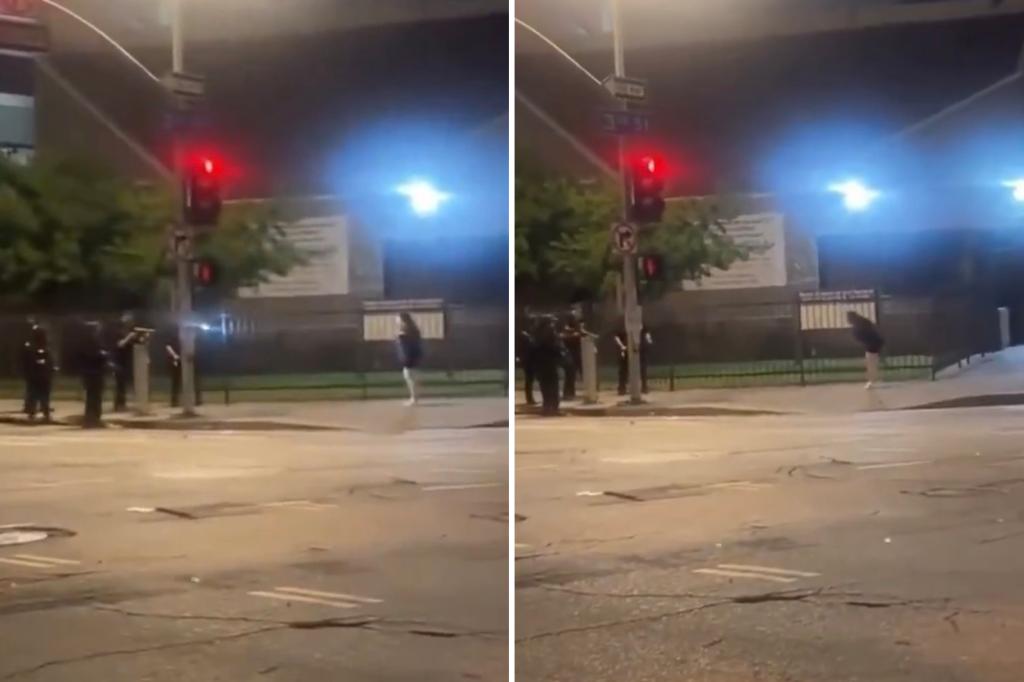Tragedy in Eastern Congo: Rising Violence and the Role of Peacekeepers
In a heartbreaking turn of events, recent clashes in eastern Congo have resulted in the loss of lives among international peacekeepers. This tragedy has unfolded against a backdrop of escalating violence, particularly around the bustling urban center of Goma, a region already fraught with turmoil. The deaths of these peacekeepers raise significant concerns about the future stability of the area and the safety of those dedicated to upholding peace.
The Current Situation in Eastern Congo
The eastern region of the Democratic Republic of Congo (DRC) has long been a hotspot for conflict. With a history marked by political instability, ethnic strife, and the exploitation of vast natural resources, the area has struggled to emerge from the shadows of war. In recent months, fighting has intensified, particularly as various armed groups vie for control over strategic territories.
As a result of this chaos, peacekeeping forces from the United Nations Organization Stabilization Mission in the Democratic Republic of the Congo (MONUSCO) have been deployed to the region. Their mission is not only to protect civilians but also to assist in stabilizing the government and facilitating humanitarian aid. Unfortunately, the situation on the ground has become increasingly perilous, culminating in the tragic deaths of peacekeepers.
The Impact of Violence on Peacekeeping Efforts
The loss of peacekeepers in eastern Congo is a stark reminder of the dangers faced by those dedicated to maintaining peace in conflict zones. These individuals often operate in high-risk environments, and the recent escalation of violence has put their lives in jeopardy. The deaths of these brave men and women not only represent a profound personal loss but also signify a setback for peacekeeping efforts in the region.
Furthermore, this incident raises questions about the effectiveness of international interventions in such complex conflicts. The peacekeepers are often caught in the crossfire between armed factions, struggling to fulfill their mandate while ensuring their own safety. The following factors contribute to the challenges faced by peacekeeping operations:
- Complex Security Landscape: The presence of multiple armed groups, often with shifting alliances, makes it difficult for peacekeepers to navigate the situation effectively.
- Limited Resources: Peacekeeping missions often operate under resource constraints, impacting their ability to respond to emerging threats.
- Local Hostility: In some cases, peacekeepers face mistrust or hostility from local populations, which can hinder their operations.
Understanding the Root Causes of Conflict
To address the violence in eastern Congo, it is crucial to understand the underlying causes. The region’s instability can be traced back to several interrelated factors:
- Historical Grievances: Ethnic tensions and historical grievances continue to fuel animosity among different groups, leading to violence.
- Resource Exploitation: The DRC is rich in minerals such as coltan, gold, and diamonds, which attract both local and international actors, often exacerbating conflicts.
- Weak Governance: The central government’s inability to exert control over remote areas allows armed groups to thrive.
These factors create a complex web of challenges that peacekeepers must navigate. Addressing these root causes is essential for achieving lasting stability and peace in the region.
International Response and Future Outlook
The deaths of peacekeepers have prompted a renewed call for international attention and action. Governments and organizations worldwide are expressing their condolences and condemning the violence. However, mere statements of solidarity are not enough; concrete actions are needed to support peacekeeping efforts and address the broader issues at play.
Potential measures to improve the situation include:
- Enhanced Support for Peacekeepers: Providing additional resources, training, and equipment can help peacekeepers operate more effectively in high-risk environments.
- Strengthening Local Governance: Supporting the development of local governance structures can help restore trust and stability in affected communities.
- Promoting Dialogue: Encouraging dialogue among conflicting parties can pave the way for peaceful resolutions and reduce violence.
Moreover, the international community must recognize the importance of long-term commitment to peacebuilding in eastern Congo. This involves not only military support but also investment in education, infrastructure, and economic development to create a more stable and prosperous future.
The Role of Local Communities
While international peacekeepers play a crucial role, local communities are fundamental to achieving lasting peace. Engaging communities in peacebuilding initiatives can foster resilience and drive change from within. Local leaders, civil society organizations, and grassroots movements have the power to influence positive outcomes and promote reconciliation.
Collaboration between peacekeeping forces and local communities can lead to greater trust and understanding. When communities feel empowered and involved in the peace process, they are more likely to support peacekeeping efforts and work towards a stable future.
Conclusion: A Call for Hope and Resilience
The tragedy in eastern Congo, marked by the loss of peacekeepers, serves as a poignant reminder of the challenges that remain in the pursuit of peace. However, it also presents an opportunity for reflection and renewed commitment to addressing the root causes of conflict. By enhancing international support, strengthening local governance, and empowering communities, there is hope for a more peaceful and stable eastern Congo.
As we honor the sacrifice of those who have lost their lives in the line of duty, let us also strive to create a future where peace reigns, and the voices of the Congolese people are heard and respected. The journey may be fraught with difficulties, but with determination and collaboration, a brighter future is possible.
See more CNET 247



